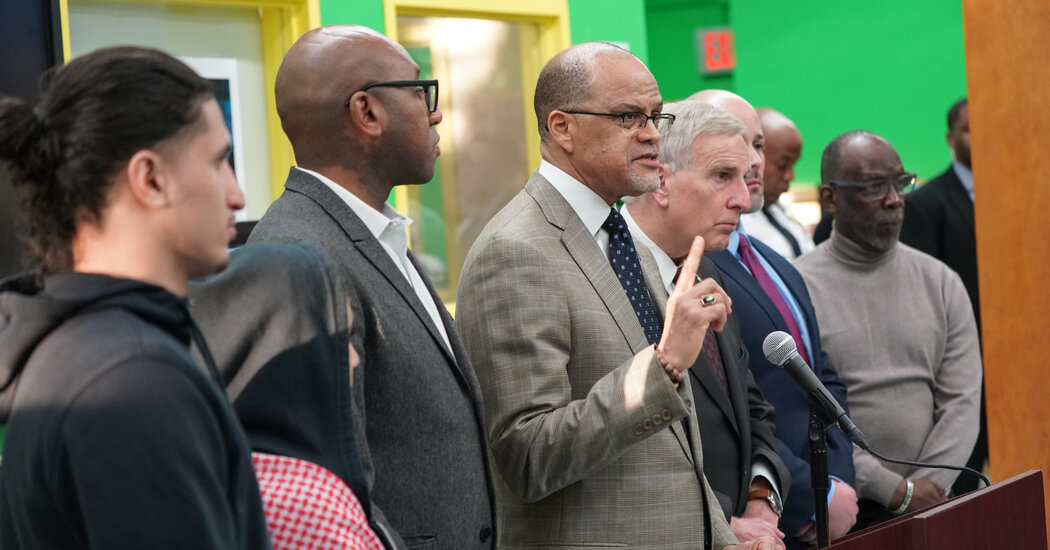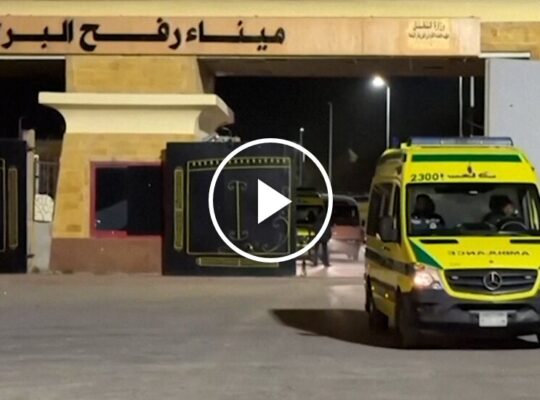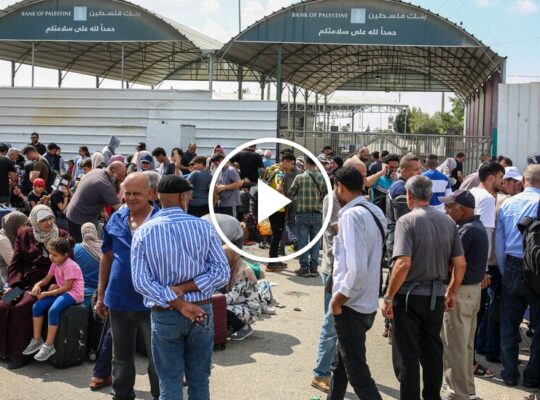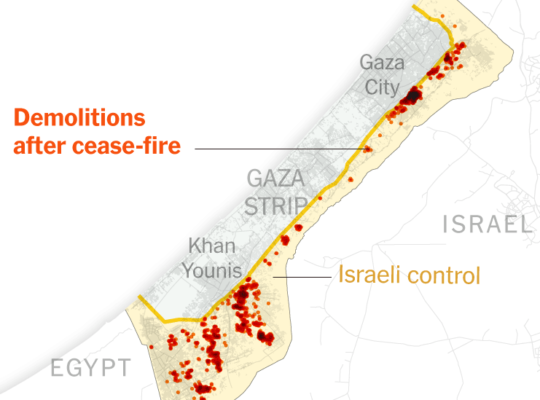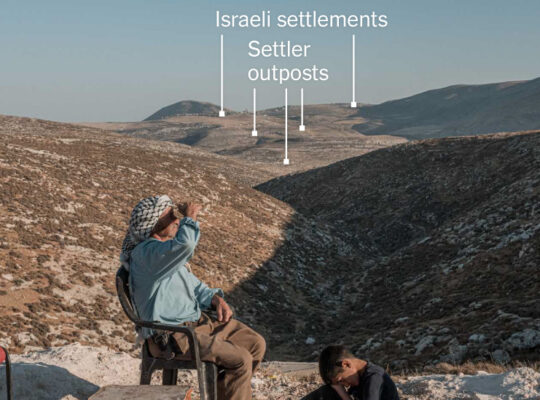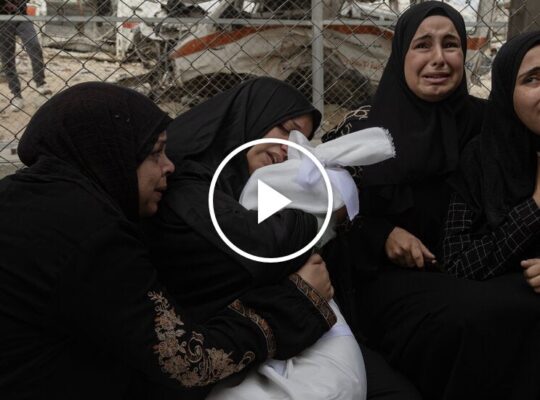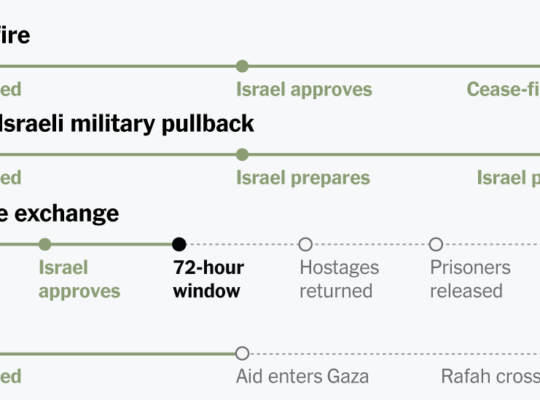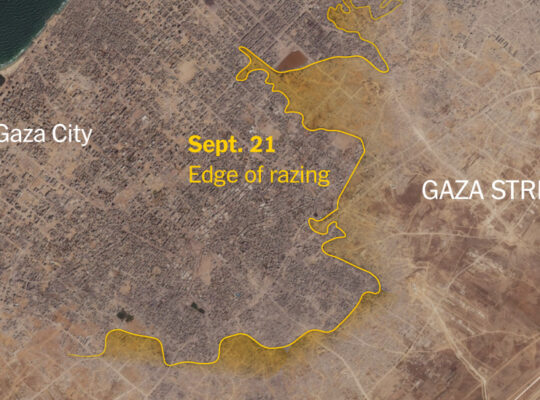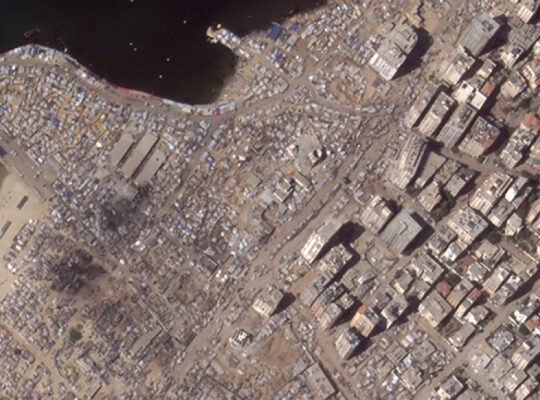New York City officials are investigating after hundreds of Queens high school students protested against a pro-Israel teacher, who was moved to another part of the building during the demonstration, the schools chancellor said Monday.
The recent episode at Hillcrest High School erupted after the teacher, who is Jewish, had changed a social media profile photo to an image of her holding up an “I Stand With Israel” sign, the chancellor, David C. Banks, said. On Nov. 20, as roughly 400 teenagers roamed the school in between class periods, the teacher was moved to a different floor, Mr. Banks said.
Mr. Banks said the teacher had been targeted for her backing of Israel and for “expressing her Jewish identity,” adding that it was “completely unacceptable.”
After TikTok clips of the raucous scene gained online attention and The New York Post published a story reporting that the teacher had hidden in a locked office, the events at the southeast Queens school became the latest high-profile flashpoint in the tensions over the Israel-Hamas war that have rocked public school districts and college campuses.
But on Monday, Mr. Banks said there had been “many rumors and misinformation” about what happened. The teacher “was never in direct danger” or barricaded into a room, he said, but was moved to a different floor of the building when the protest began.
“Violence, hate and disorder have no place in our schools,” Mr. Banks, who himself attended Hillcrest in the 1970s, said at a news conference.
Still, the chancellor also called for a measure of understanding, saying the war was a “very visceral and emotional issue” at Hillcrest, where about 30 percent of students are Muslim. “They feel a kindred spirit with the folks of the Palestinian community,” Mr. Banks said, adding that the “notion that these kids are radicalized” was irresponsible.
Within hours of first reports of the incident last week, Mayor Eric Adams condemned the episode as a “vile show of antisemitism.” Melinda Katz, the borough’s district attorney and a Hillcrest alumna, said it “both angers me and breaks my heart to see young people using violence to try to silence” supporters of Israel. And one Republican city councilwoman called for Hillcrest to “be shut down pending a full and thorough investigation.”
The incident at Hillcrest was a stark example of just how fraught the fallout from the war has been for school communities across the nation.
At times, videos of students marching through campuses or banging on classroom doors have gone viral — setting off swift firestorms. In San Francisco, for example, students said their peers and administrators had their personal information published online after a short clip of teenagers shouting “Palestine will be free from the river to the sea” during a school rally was viewed more than 17 million times on X, the platform formerly known as Twitter.
In New York City, the initial reports on the episode at Hillcrest — a large high school of roughly 2,500 students in Jamaica, Queens — were met with immediate criticisms from officials. The teacher who was targeted has not spoken publicly. She was not at the school on Monday, officials said, but is expected to return later this week.
Many local politicians said they worried that intolerance and antisemitism had been allowed to impede her from doing her job. “What’s going on overseas is not license for anyone to hate,” Eric Dinowitz, who leads the City Council’s Jewish caucus, said at a rally earlier on Monday that had been organized to respond to the Hillcrest incident. “We do not have a Department of Education that is acting with the urgency of the moment.”
Mr. Adams said in a statement on Saturday that the incident was “motivated by ignorance-fueled hatred, plain and simple.”
“It will not be tolerated in any of our schools, let alone anywhere else in our city,” the mayor added. “We are better than this.”
School officials said some of the students involved in the protest had received suspensions for their conduct, though the officials were barred from discussing individual cases.
On Monday, Mr. Banks and other city leaders attempted to quell the mounting online backlash against students at the school. On social media, some commenters had begun labeling the teenagers as terrorists or criminals and demanded harsh penalties for the full student body.
“To speak of every child in this school as antisemitic is simply wrong,” said Donovan Richards, the Queens borough president.
He added in an interview that because the Department of Education had not addressed the war in the Middle East head on, “you had this powder keg waiting to explode.”
In the aftermath of the incident, Hillcrest also attracted attention for other recent issues at the school — some of which the chancellor said had also been portrayed incorrectly online. A week earlier, four teenagers had been taken into police custody after they fought in school and injured several school safety agents, the police said. Mr. Banks said the brawl was “completely unrelated” to the incident last Monday.
Another 18-year-old student was also charged with aggravated harassment and making a threat of mass harm on Nov. 21, but the school’s principal said that it was also unconnected to the protest the previous day.
Outside Hillcrest on Monday, more than a dozen police officers and school safety agents stood on the front steps. In interviews, a half-dozen students, who asked that their names not be published, shared mixed feelings about what had taken place. Several were frustrated over how their school had been portrayed online. One called the episode unacceptable and said he worries for his safety if other incidents occur.
Most of the teenagers said they believed that while some of their peers sought to protest the teacher’s post and express support for Palestinians, many of their classmates participated because they wanted to have fun or were curious about the commotion.
In interviews, students, teachers and local politicians briefed by the authorities on the demonstration described a chaotic scene during the protest, which occurred in the middle of the school day on Nov. 20. They also noted that student organizers had been making plans for a rally days before it occurred.
Around 11 a.m., some of the organizers sent out a message telling their peers the protest was on.
Hundreds of teenagers filled the school’s third floor — and many did not return to classrooms when the 11:11 a.m. bell rang for their next class. Some waved Palestinian flags, and one carried a large microphone. Others rushed toward the classroom of the Jewish teacher, who was removed and taken to another section of the building. At around 11:20 a.m., school safety agents contacted their sergeant, asking for help with a “disorderly group of students.”
About 25 officers were sent to help, and all of the teenagers eventually returned to their classrooms, police officials said.
One student later warned a teacher that the protests would continue as long as the teacher remained on staff — and on Nov. 22, the school was placed under lockdown as rumors spread of another planned demonstration.
Two teachers at the school, who spoke on condition of anonymity since they were not authorized to speak publicly, said they believed their school mishandled its response to the initial incident.
Some Hillcrest students had openly discussed their plans in the lead-up to Nov. 20, the two teachers said. By the weekend beforehand, they said, the Jewish teacher had learned she could be a target and informed a union representative and the principal.
But those details were not shared with the full staff, the two teachers said, adding that they felt blindsided when chaos erupted. Both said they wished for more robust communication. And they questioned whether the protest could be have been better controlled with more preparation.
Muhammad Ghazali, the student government president for the school’s senior class, said at the news conference he was disappointed with how the events unfolded, adding that the “entire Hillcrest community was hurt and broken” because of how some students behaved.
“It didn’t turn out the way it should have been,” he said. “It was meant to be a peaceful protest from the very beginning. But some of these students lack maturity.”


